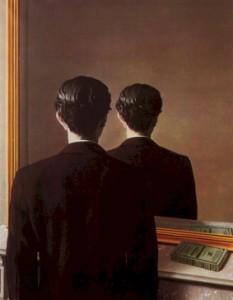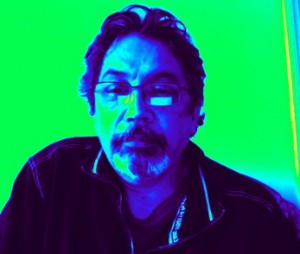According to the teaching of Advaita Vedanta even the most well balanced people have an identity crisis (even if they don’t know it). If we meet a person who claimed to be Napoleon we’d most likely quietly cross to the other side of the room. The ancient sages of India, despite knowing that most of insist we are characters very different from who we are in truth, are slightly more accommodative of our self-delusion and try to help us rise above it. Everyone is born ignorant of the world and also of the truth of one’s identity: that is part and parcel of the human condition. Worldly ignorance is relatively easy to overcome, but self-ignorance requires subtle work and takes longer.
It is a rare person, says the Upanishad, who turns back from worldly involvements and wants to know who the observer is. Most, however, remain firmly fixated in their partial views of who they are, and end their lives deluded. The view is partial because they know ‘I am’, but do not know what ‘I’ is: and never even think that it is worth the enquiry. It’s not just the Eastern tradition that finds this a waste of a human embodiment, the same sentiment is also evident in the Western tradition in the words of Socrates: ‘An unexamined life is not worth living.’ Continue reading



